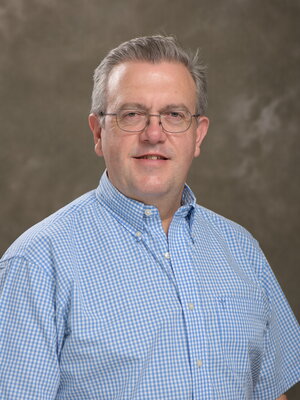
I earned my bachelor's degree in chemistry, the American Chemical Society Certified version, from Butler University where I was a first generation student. Then I went on to earn a master's degree in physical chemistry from the U of I working under Profs. Lynn Belford and Robert Clarkson. My thesis centered around using magnetic resonance techniques to characterize MRI contrast agents. Along the way of learning all that science I had the good fortune to encounter some good people that mentored me along in my academics and in life.
While at Butler I took classes from Dr. Joe Kirsch who became my advisor sophomore year. Later I would go on to do research under his direction. Butler’s chemistry department back then was rather small. So, they used faculty advisors. I would run into him all the time as the department only occupied one floor of one building. I even got to have my own office for a while when I was lab assistant for an analytical chemistry class. Needless to say, I spent a lot of time around the department interacting with Dr. Kirsch and the other faculty. The conversations were certainly about chemical principles, but we discussed all manner of things in addition. It was those interactions, primarily the ones with Dr. Kirsch, that set into motion my interest in advising whether I knew it at the time or not.
Fast forward to Illinois. Dr. Belford and Dr. Clarkson ran the Illinois EPR Research Center which was housed down in the basement of the medical school building. Dr. Clarkson’s main office was down in the Large Animal Clinic of the Veterinary School where he oversaw their MRI. So, I have had the good fortune to witness a pig getting an MRI due to nasal issues. Between these two gentlemen I got to work on numerous types of magnetic resonance modalities: MRIs, EPRs, NMRs and a couple of odd-ball hybrid instruments. I learned how to program thanks to them. I got to tinker with all sorts of technical stuff, which I still enjoy to this day. But as fate would have it, one summer Dr. Belford needed someone to assist with Summer registration. He was head of undergrad advising. This was back before the department had fulltime, professional advisors. He thought I would be good at it. So that is how I earned my stipend that summer, and the next, and the next... Lynn was a great scientist with a brilliant mind, but he was also a genuinely good human being. He had a lot on his plate as a full professor and director of a NIH funded center. But every time an undergrad entered our lab, he would stop everything and treat them like they were the only thing in the world that mattered in that moment. I had lunch many a day with Lynn, Bob, and Lynn’s wife, Geneva (a full professor in the Computer Science Department) where we would talk about all things higher ed. I learned a great deal about the world of higher education thanks to those wonderful people. Fast forward a little… when an undergad advising position opened up in the School of Life Sciences across the street I applied, and the rest is history.